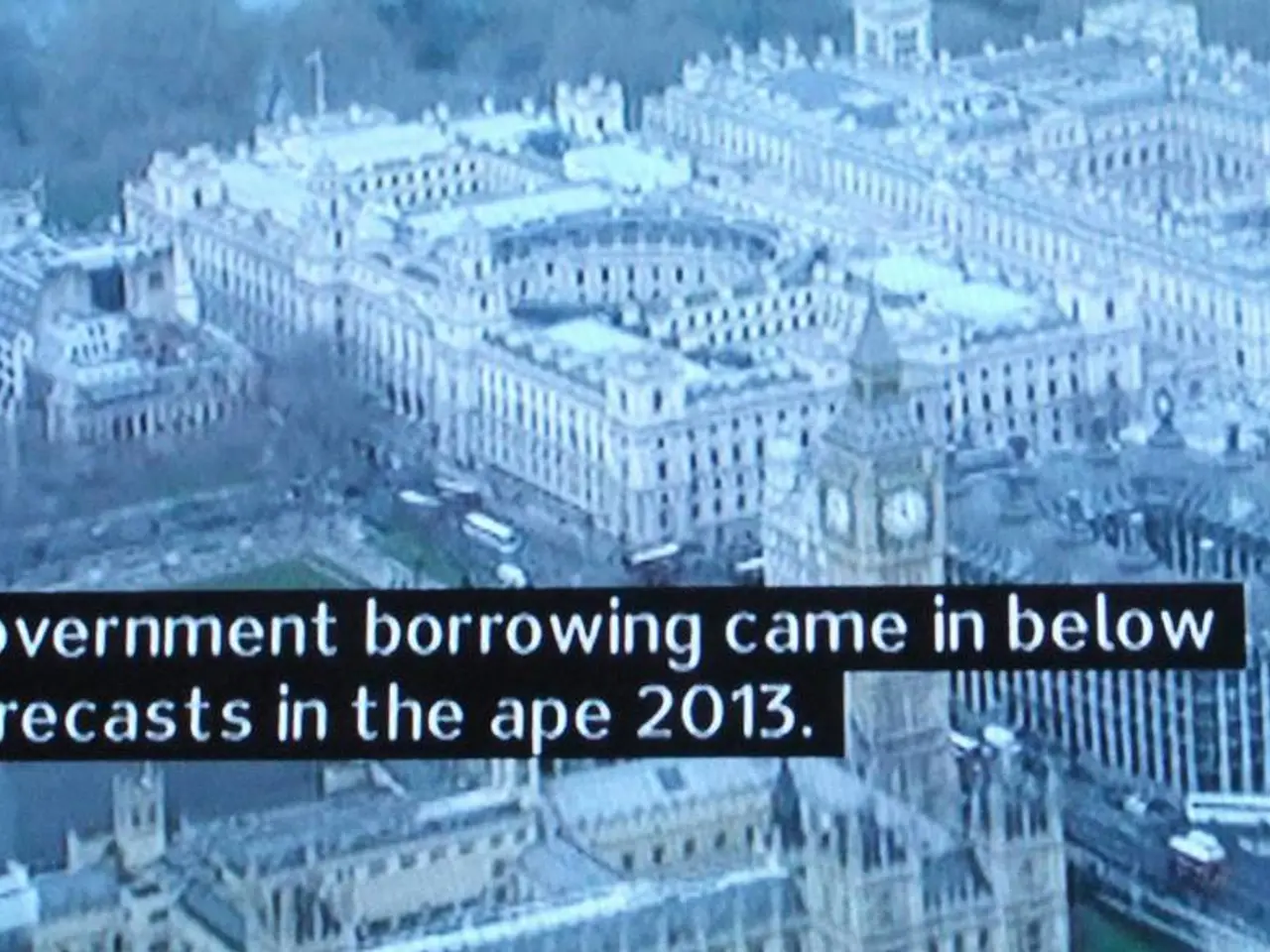The acknowledgment of the West fails to alter the on-ground situation: The prospect of a Palestinian state appears increasingly distant
In recent developments, a growing number of countries have recognized the establishment of a Palestinian state, with over 140 nations now acknowledging the Palestinian cause. This shift in international policy has significant legal and political implications for both the recognizing states and the Palestinian Authority.
The Israeli government, led by Prime Minister Benjamin Netanyahu, has become increasingly vocal in its rejection of a Palestinian state. Ministers openly call for the annexation of the occupied West Bank and the expulsion of Palestinians from Gaza. The Netanyahu government's stance is particularly significant as it marks the most far-right government in Israel's history.
One of the key legal consequences of recognizing a Palestinian state is the obligation for the recognizing state to respect the territorial integrity and political independence of the recognized state. This also includes accepting the inherent right of self-defense by the recognized state if it is subject to an unlawful use of force.
Ardi Imseis, an associate professor of international law, emphasizes that the act of recognition of Palestinian statehood by countries has clear legal consequences that impact the recognizing state's obligations under international law.
The UN considers East Jerusalem, the occupied West Bank, and Gaza to be Palestinian territories. The Israeli government's approval of a massive expansion of settlements, including the controversial E1 project, has raised concerns as it could effectively cut the West Bank in two, further complicating the already fragile peace process.
The situation on the ground makes it almost impossible to imagine that a two-state solution could become a reality. Over 700,000 Israeli settlers, most of whom are Jewish, now live in the occupied West Bank and East Jerusalem, in settlements considered illegal under international law.
Gaza has been reduced largely to rubble by nearly two years of relentless bombardment and ground operations launched by Israel. One in 10 people living in Gaza has been killed or injured in the war, totaling over 200,000 according to a former chief of the Israeli military.
Many analysts and activists attribute this to decades of Israeli policy aimed at sabotaging the two-state solution by building Jewish settlements on Palestinian land and undermining the Palestinian Authority. The Palestinian Authority is deeply unpopular among Palestinians and is seen by many as weak, corrupt, and lacking legitimacy.
Elliott Abrams, a senior fellow for Middle Eastern Studies at the Council on Foreign Relations, argues that the countries' decisions to recognize Palestinian statehood are motivated by domestic political pressures. Mekelberg of Chatham House suggests that European states could put much more pressure on Israel through trade restrictions, as the European Union is by far Israel's largest trading partner.
The EU has already sanctioned some violent settlers and proposed imposing new sanctions against 'extremist ministers and violent settlers' and removing some of Israel's trade concessions, which would effectively mean putting new tariffs on Israel. Israel's Finance Minister Bezalel Smotrich stated that the approval of thousands of new Jewish housing units in the West Bank will 'permanently bury the idea of a Palestinian state.'
Recognition by these countries will mark a symbolic milestone for the Palestinian cause. Three G7 countries (United Kingdom, France, Canada) and several other countries (Australia, Portugal, Belgium) are expected to recognize a State of Palestine ahead of the United Nations General Assembly.
However, the recognition also places greater obligations on the Palestinian Authority. Mekelberg states that the recognition goes both ways, placing greater obligations on the Palestinian Authority. The New York Declaration outlines steps for Israel, the PA, and the international community to take, including the possibility of imposing restrictions on those who try to undermine them.
International experts, including the International Association of Genocide Scholars, two leading Israeli human rights organizations, and an independent United Nations inquiry, have concluded that Israel has committed genocide against Palestinians in Gaza. This further emphasizes the need for accountability and a peaceful resolution to the Israeli-Palestinian conflict.
Read also:
- United States tariffs pose a threat to India, necessitating the recruitment of adept negotiators or strategists, similar to those who had influenced Trump's decisions.
- Weekly happenings in the German Federal Parliament (Bundestag)
- Southwest region's most popular posts, accompanied by an inquiry:
- Discussion between Putin and Trump in Alaska could potentially overshadow Ukraine's concerns







